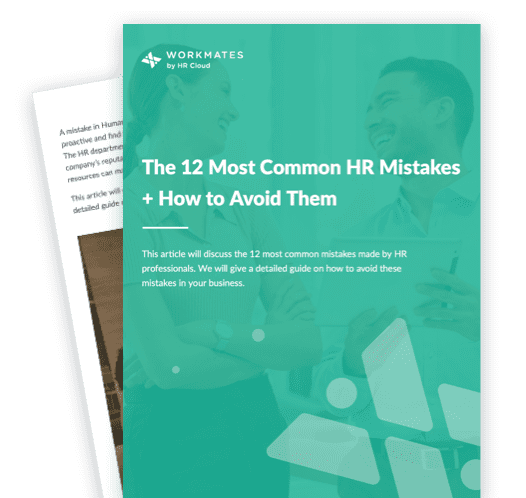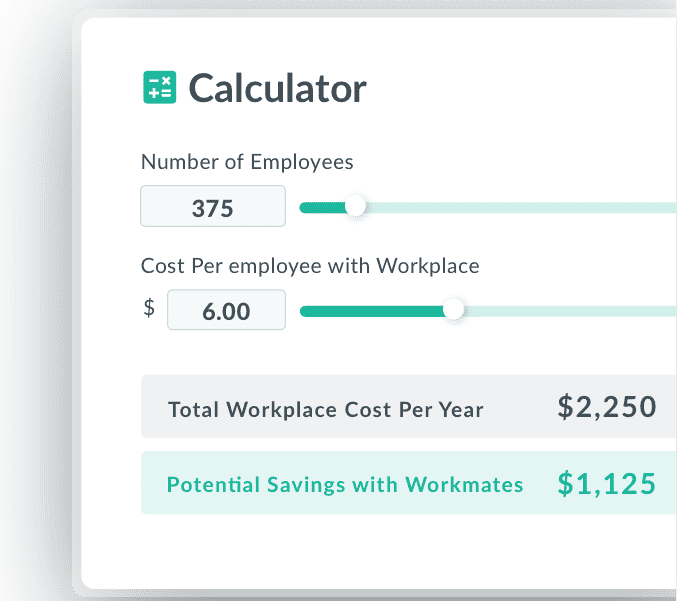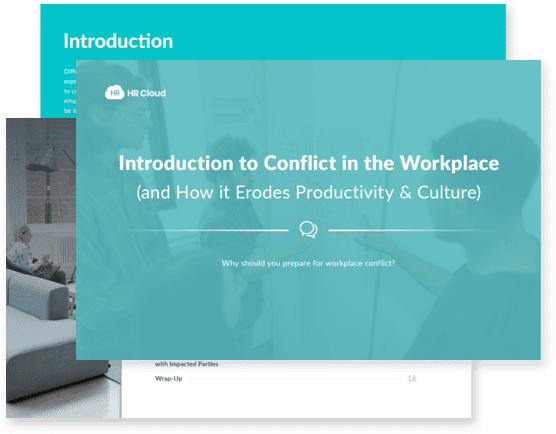- Workplace perks
- 1. Medical coverage
- 2. Dental insurance
- 3. Vision insurance
- 4. Prescription benefits
- 5. Life insurance policies
- 6. Retirement plans
- 7. Remote work flexibility
- 8. Student loan repayment
- 9. Travel and spending expenses
- 10. Company equipment
- 11. Paid training and development
- 12. Extended leave
- 13. Family leave
- The list goes on


 Cut onboarding time
by 60%—here's the
Ultimate Checklist
that helped do it.
Cut onboarding time
by 60%—here's the
Ultimate Checklist
that helped do it.

In addition to receiving a salary and any relevant commissions as part of their agreed pay structure, employees also typically offer their staff a range of non-monetary benefits. These added perks make an employer all the more desirable to work for, and help to keep employees feeling valued.
Common types of employee benefits encompass a range of healthcare-related covers, such as medical and dental insurance, although staff perks can be far more varied. Many of the insurance-based benefits are only relevant to full-time employees, while perks such as those offered within the workplace are usually available to all.
Workplace perks
When it comes to offering perks that are delivered within or through the workplace itself, the options vary widely. Some firms focus expressly on fun and indulgent perks, such as takeaway foods, games rooms, etc., while others center their perk offerings around health, wellness, and lowering stress.
One common workplace perk is the availability of free food, snacks, and beverages. These extras can range from treats, like pastries and specialty coffees, while others may focus on healthy options, like salad bars, fruit platters, and flavor-infused waters.
The great thing about some employee perks is that they can not only make staff feel more valued and happier, but they can have a direct impact on their productivity too.
For example, offering a range of healthy drink options can encourage better hydration which in turn can improve productivity. As Lindsay McLain, VP Marketing at JUST Water says, “Research clearly shows that optimal hydration helps to keep our brain cognition working at its best. High-quality mountain spring waters and flavor-infused waters are a great perk for employers to offer their staff, investing in their wellbeing while helping to keep their productivity up through the day.”
Other wellness-related workplace perks growing in popularity include yoga, meditation, gym memberships, vouchers for healthy eateries, and more. As we collectively focus more and more on wellness, this trend towards offering employees healthy workplace perks is growing substantially.
In addition to this, some of the more traditional benefits offered typically include:
1. Medical coverage
Medical or healthcare coverage is the most common benefit provided to employees. These cover packages typically include cover for checkups, doctors’ appointments, basic medical procedures, emergency room visits, and a range of surgical procedures.

HR mistakes impact your entire organization. Learn how to avoid the 12 most common mistakes with our free ebook.
Download now2. Dental insurance
Dental insurance is another coverage option that employers often provide. Sometimes dental coverage forms part of the above medical coverage, but other times, it comes as a separate benefit.
Dental cover generally includes routine dental checkups and cleaning, x-rays, as well as fillings, and other more involved procedures such as root canals and surgeries.
3. Vision insurance
Vision insurance typically comes as a separate plan and usually includes routine checkups and regular eye exams, prescription lenses, and some procedures.
4. Prescription benefits
Many health care coverage plans include prescription benefits, offering lower co-pay amounts for prescriptions; in some cases, medications may even be fully covered through the plan. Pharmacy benefits usually include a plan formulary, listing the medications that are available under your plan; these often include those used to treat chronic diseases. Most plans also offer tiered medication prices, with the lowest prices including generic medications.
5. Life insurance policies
Life insurance is another common perk and is often included as a group plan covering all staff members for an allocated period of time. Life insurance benefits will typically last for as long as an individual’s employment at the respective company does, after which they will be removed from the group plan. Some companies offer individual plans, but it is usually the more expensive option.
Find Out How Much You Can Save by Switching to Workmates.
and save upwards of 60%

6. Retirement plans
Retirement plans are available through most companies, although the structure may differ between firms. Common retirement plans include 401(k) Individual Retirement Arrangement (IRA) plans and Simplified Employee Pensions (SEP).
7. Remote work flexibility
With remote working trends long-outliving the pandemic, a vastly increasing number of companies now offer remote working flexibility options to their staff. Some allow staff to work from home on agreed days of the week, while others offer full flexibility for employees to choose their own workplace schedules entirely.
8. Student loan repayment
New college graduates typically have outstanding student loan balances, and some employers offer programs to refinancing their student loans to assist in meeting their repayments. This is typically a set amount each month and is a great way to support newly qualified staff in entering the workforce.
9. Travel and spending expenses
When a company requires its employees to travel for business reasons, they typically cover the cost of the travel and accommodation expenses. In addition, though, many will also cover general spending costs such as food, museum Amsterdam and transportation.
10. Company equipment
Companies routinely provide a range of equipment items to employees to assist them in carrying out their duties, most of which center around tech. Items such as laptops, tablets, and cellphones are the most common; while these items will typically remain the property of the business, employees benefit from their use during their term of employment, including any and all necessary repairs, upgrades, etc.
11. Paid training and development
Many businesses fund training and other professional development for their staff, and this is often the case with new employees who require training at the start of their hiring. Some companies go all out in providing employees with opportunities to attend professional (and, in some cases, personal) development courses, allowing staff to benefit from such events without having to dip into their savings or their paid leave allocations.
12. Extended leave
In addition to paid vacation time and sick leave, many employers also offer extended leave for longer-term health issues.
Extended leave relates to time away from work for longer periods due to medical reasons or mental health issues. The amount of extended leave coverage varies between employers, and companies will typically require documentation to verify the medical condition or treatment to be administered during that time.

Introduction to Conflict in the Workplace
(and How it Erodes Productivity & Culture)
13. Family leave
Many company benefit packages also include the option for extended absence as part of a family leave plan. This most often relates to maternity or paternity leave, allowing parents of newborn babies some time at home to bond with their new additions and adapt to the new dynamic. The length of family leave differs between employers but is typically up to 12 weeks off work.
The list goes on
In addition to these benefits listed, there are many more options for employers to offer as benefits to their staff. College grants, scholarships, transportation expenses, mental health coverage, employee app and other specialist services not covered under basic health care plans, such as sleep specialists.
Of course, companies must carefully weigh up the range of benefits that can be offered in a cost-effective way; when it comes to keeping employees feeling valued and satisfied in their jobs, the more perks, the better.
Author Bio:
This article is written by a marketing team member at HR Cloud. HR Cloud is a leading provider of proven HR solutions, including recruiting, onboarding, employee communications & engagement, and rewards & recognition. Our user-friendly software increases employee productivity, delivers time and cost savings, and minimizes compliance risk.
The 40 Best Thank You
Messages for Colleagues
building a positive and engaged culture at your company.

Keep Reading
Best Onboarding Practices for Manufacturing Companies: 15 Proven Tactics That Boost Retention
"Three simple changes to our onboarding process cut our 30-day turnover from 28% to 12%.
Equity in the Workplace: A Practical Guide to Building Fairness and Opportunity
Workplace equity shouldn't be an aspiration—it should be the foundation of how
7 Employee Relations Responsibilities That Transform Workplace Culture
Employee relations shapes how people experience work every single day. It's not just
Like What You Hear?
We'd love to chat with you more about how HR Cloud® can support your business's HR needs. Book Your Free Demo

Build a Culture of Recognition. Boost Engagement. Guaranteed.
Workmates empowers employees to stay informed, connected, and appreciated—whether they’re on the front line, in the office, or remote. Recognition drives 12x higher engagement.Trusted by industry leaders in every sector




Cut Onboarding Costs by 60%.
Take the confusion and follow-ups out of onboarding with automated workflows, digital forms, and structured portals—so new hires ramp faster 3X quicker.Trusted by industry leaders in every sector




.png)
